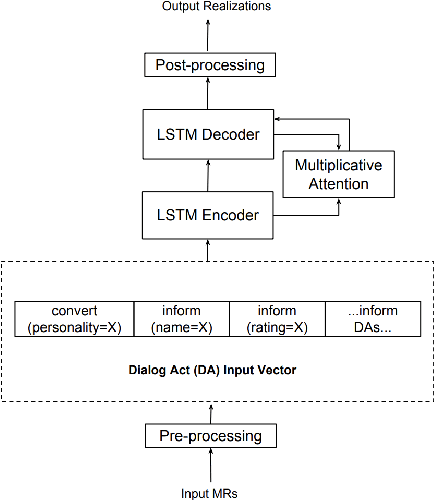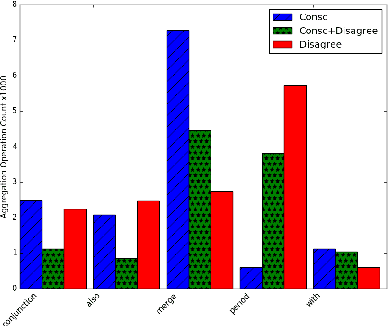Neural MultiVoice Models for Expressing Novel Personalities in Dialog
Paper and Code
Sep 05, 2018



Natural language generators for task-oriented dialog should be able to vary the style of the output utterance while still effectively realizing the system dialog actions and their associated semantics. While the use of neural generation for training the response generation component of conversational agents promises to simplify the process of producing high quality responses in new domains, to our knowledge, there has been very little investigation of neural generators for task-oriented dialog that can vary their response style, and we know of no experiments on models that can generate responses that are different in style from those seen during training, while still maintain- ing semantic fidelity to the input meaning representation. Here, we show that a model that is trained to achieve a single stylis- tic personality target can produce outputs that combine stylistic targets. We carefully evaluate the multivoice outputs for both semantic fidelity and for similarities to and differences from the linguistic features that characterize the original training style. We show that contrary to our predictions, the learned models do not always simply interpolate model parameters, but rather produce styles that are distinct, and novel from the personalities they were trained on.
 Add to Chrome
Add to Chrome Add to Firefox
Add to Firefox Add to Edge
Add to Edge